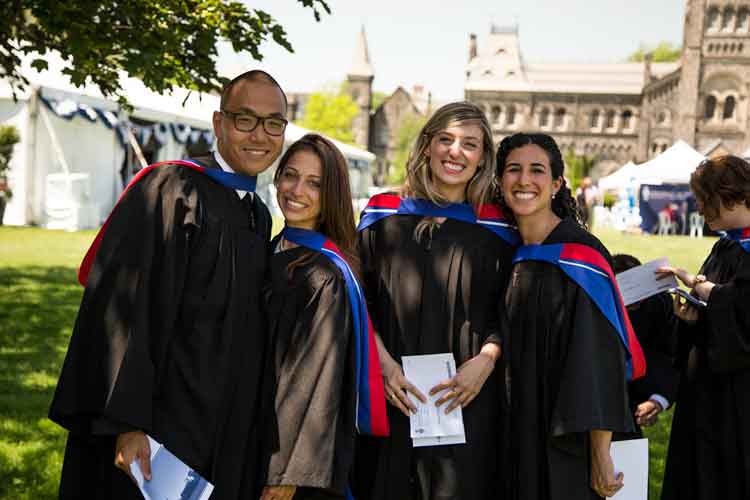#UofTGrad16: the doctors are in
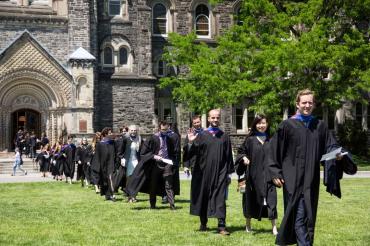
Published: May 31, 2016
They just graduated from the top medical school in Canada –12th in the world – and somehow they made it look easy.
Students from the Faculty of Medicine became the first to graduate from the University of Toronto's 18,000-strong Class of 2016 today, crossing the stage at Convocation Hall to receive their medical degrees.
They're among an expected 13,500 students who will graduate with undergraduate and graduate degrees at spring convocation ceremonies that continue through June 15.
See a Storify from the May 31 ceremony
But just who are great minds rocking the black gowns?
Below, meet some of the newest doctors who'll be caring for patients and leading research for years to come.
Erik Yao:
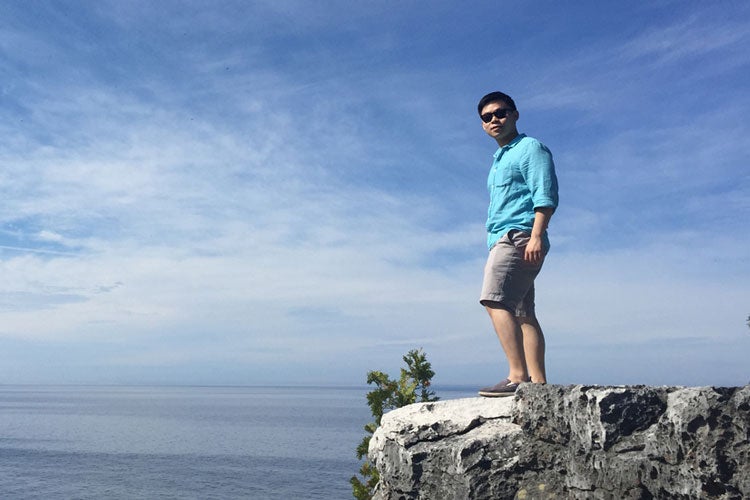
Next steps: residency in family medicine at U of T.
Why: “I hope to follow that up with additional training and/or locum work in particular areas of interest such as palliative medicine. Down the road, I want to work in a community-based practice that allows me to integrate my subspecialty interests and also pursue health advocacy.”
Favourite memories: “I’ve had so many meaningful encounters with patients. From the first baby I helped bring into the world to the resilience I saw in the eyes of a dying man, these are memories that I will cherish for the rest of my life. They’re a constant source of inspiration and drive for me to become a better physician.”
Read more
Louai Musa:
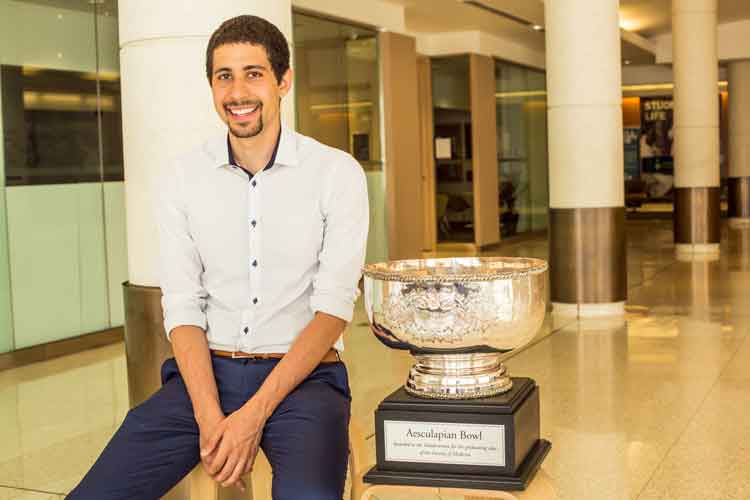
Next steps: family medicine residency (in Abbotsford, BC) then practice in under-resourced areas.
Why: “My family is originally from Palestine. I think about people who are just as smart, just as hard working, but didn’t end up where I did. When I think about those inequities and injustices, I know it’s my responsibility to give back. “I want to help build better health-care systems in Canada and abroad. I want to go to the places where people aren’t heard, and help them.
Favourite memories: working with a U of T student group to change practices of the Toronto Police Department around sharing information related to mental health.
“Even when there was no harm to others– such as in a suicide attempt – if the police were involved, that information would be included in records that were accessible to the U.S. border police.
“I could see the impact of this during my psychiatry rotations. Patients were sometimes unwilling to discuss their mental health issues because they were fearful of the police being told and having this permanent mark on their record. It was important for me to do something about it.”
Read more
Jamal Depradine:
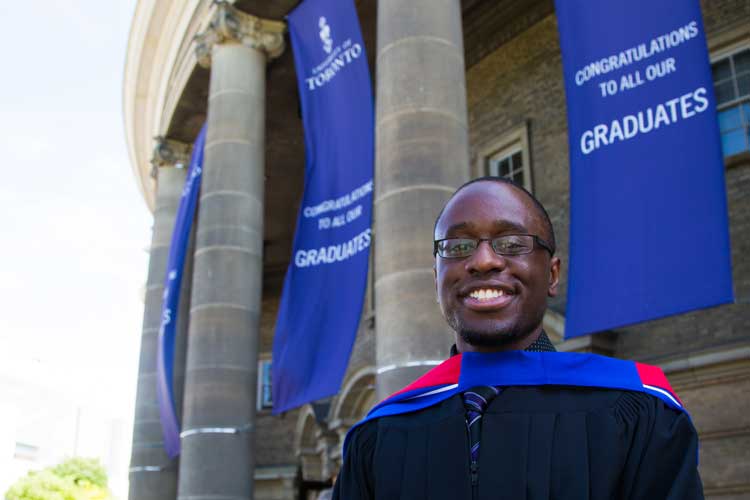
Next steps: residency in internal medicine in Ottawa then train as a cardiologist.
Why: “I want to be a physician that makes a substantive impact.
“People think that doctors doing community work need to be in family practice or in public health. But if those are your fundamental values, you will find a way to incorporate them into whatever you do. People in the lowest income percentile are much more likely to die of cardiovascular disease. So there’s a lot of work to do in cardiology. I think all physicians regardless of specialty need to look at social principles as their fundamental responsibility.”
Favourite memories: In 2004, Depardine took part in the Summer Mentorship Program (SMP), which brings Indigenous and Black high school students to U of T to explore the health sciences and meet faculty and alumni working in hospitals and clinics.
“Where I grew up in Scarborough, there weren’t many people who were involved in the medical professions. During SMP, I started envisioning myself in these professional positions.”
After earning a BSC in physiology at U of T and a Master of Management and Innovation from U of T Mississauga, Depardine enrolled in the MD program. He conducted research with the Street Health Nursing Foundation, working on projects to improve the quality of service for under-housed populations.
“I feel that the fundamental ethos of medicine is to identify suffering and vulnerable people and to do the most I can to address their suffering and vulnerability.”
Read More
Eric Coombes:
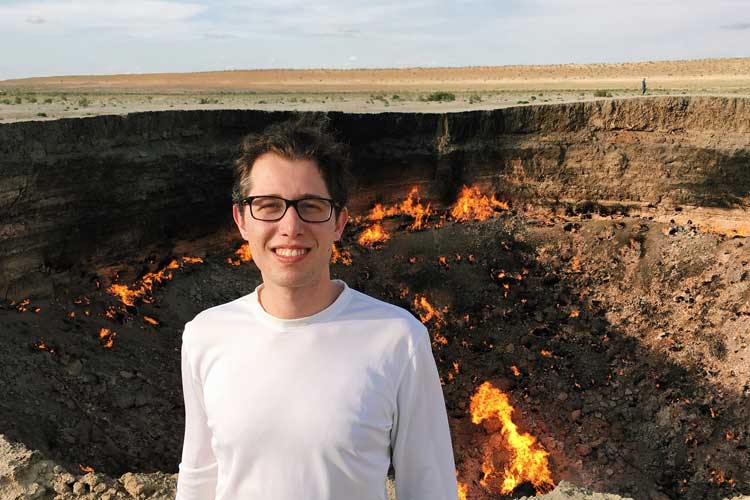
Next steps: residency in internal medicine.
Why: “Internists unravel diagnostic complexity and manage disease across a wide spectrum of acute and chronic illnesses, while simultaneously communicating with our patients empathetically and advocating for their needs across the interdisciplinary team.”
Favourite memories: “My favourite experiences in medical school were my clerkship rotations, where you really get the first opportunity to apply the medical knowledge you have acquired to direct patient care.
“It was fascinating to be exposed to such a diversity of clinical presentations and it was gratifying to develop longitudinal relationships with my patients.”
Read more
Kim Blakely:
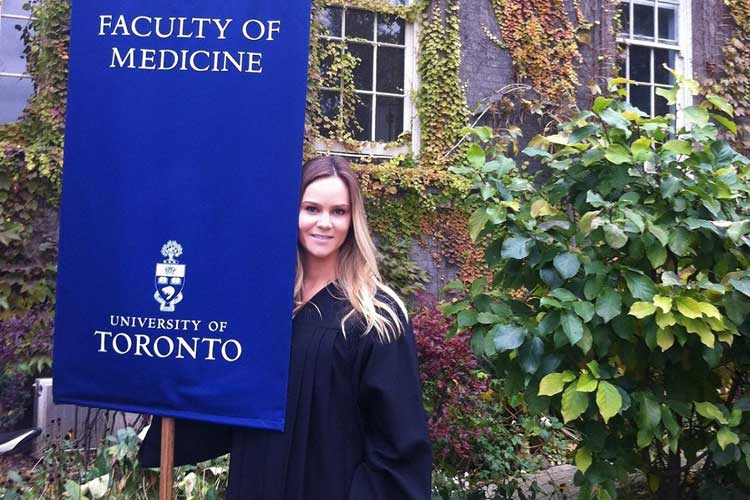
Next steps: residency in dermatology.
Why: “The breadth and complexity of diseases in dermatology, and the way they impact patients, not only physically, but also mentally and emotionally, really resonated with me. I also love that being a dermatologist allows you the flexibility to be an internist, a surgeon, and a pathologist all within a single day, and I think that is something very unique and special to dermatology.
“I see myself establishing a practice as an academic dermatologist and pursuing a blended career that includes medicine, research and teaching. I have a particular interest in cancer, which stems largely from my PhD in oncology research, and I could see myself continuing to further explore and develop this as I progress in my career.
“I also appreciate the valuable role that dermatologists play in the community and I see myself becoming involved in initiatives to improve e-health technologies to increase access to dermatologic services in underserved areas.”
Favourite memories: “I think my fondest memories come from clerkship, the time when students finally become immersed in patient care and we get our first taste of what being a doctor truly feels like. I’ve met so many wonderful patients and these experiences have really helped shape the person I am today.”
Read more
